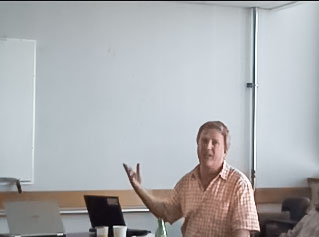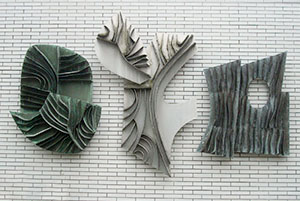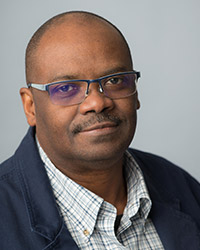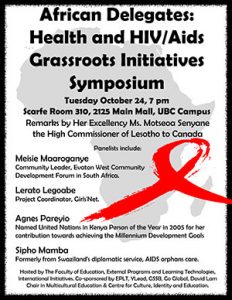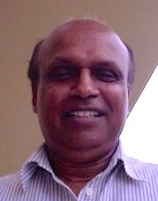Watch: “Youth and Media: Literacies Old and New” by Dr. Michael Hoechsmann
The featured speaker is Dr. Michael Hoechsmann. In this lecture, Dr. Hoechsmann addresses how changes in access to technology have facilitated both new conditions and new challenges for the reception and conception of youth voice and expression.
Watch: “Integrative Anti-Racism Alternative” by Professor George Sefa Dei
Keynote Address at the “Multiculturalism With(out) Guarantees: The Integrative Anti-Racism Alternative” University of British Columbia, Vancouver. (April 2, 2007). The keynote speaker is Professor George Sefa Dei. In this keynote address, Professor Dei offers offers some critical points in theorizing “integrative anti-racism,” as well as draws attention to the pressing need for new questions in the field of anti-racism.
Interview with Handel Wright by Carole Wallace Link editor
Interview quoted in Link, a semi-annual newsletter put out by the Network of Centres and Institutes in Education at UBC (NCIE). Interview with Dr. Handel Wright, conducted by Carole Wallace. In this interview, Dr. Handel Wright sits down with Link editor, Carole Wallace, to discuss his work at CCIE and the path that lead him to found CCIE and take up a Canadian Research Chair at UBC.
Audio Interview with Handel Wright on BC BUZZ show “In the Spotlight” discussing Canadian and American multiculturalism
Interview with Handel Wright featured on BC BUZZ show “In the Spotlight,” conducted by Dave Garb. (February 19, 2007). In this interview, Dr. Handel Wright discusses some of the differences between Canadian and American multiculturalism, as well as talks about a vision of Canada that is not grounded upon a mere celebration of difference, but upon a deeper and more sustained conceptualization of equity.
Interview with Handel Wright – Equity Matters
Interview with Handel Wright – Interview quoted in Equity Matters is a newsletter published Equity Office at the University of British Columbia. Interview with Dr. Handel Wright, conducted by Senior Equity Advisor, Margaret Sarkissian. (November 2006). This interview provides an overview of Dr. Wright’s academic and activist contributions.
Watch: “Clear words from a Lion” by Ms. Motseoa Senyane
The featured speaker is the Lesotho High Commissioner to Canada, Ms. Motseoa Senyane. In this video-stream, High Commissioner Senyane welcomes symposium delegates and speaks to the pressing need for a clearer and much more unbiased image of Africa. The Video-stream published on YouTube from the HIV/AIDS Grassroots Initiative Symposium. (Oct. 24, 2006).
Watch: “Changing Nature of Australian Multiculturalism” by Dr. Siri Gamage
The featured speaker is Dr. Siri Gamage, University of New England, Australia. In this lecture, Dr. Gamage focuses on how Australian multiculturalism and associated political discourses and policies have undergone substantial changes in emphasis and direction in the last decade compared to the previous decades under the liberal-nation federal government.
“The Face of Asian Mixed Marriages in BC” Interview with Handel Wright in The Tyee
The Face of Asian Mixed Marriages in BC – Interview quoted in The Tyee, an independent alternative daily newspaper. Interview with Dr. Handel Wright, conducted by Chow, Amy. (December 27, 2005). In this interview, Dr. Wright provides a historical perspective of mixed race relationships in BC, as well as delves into some of the complexities surrounding this topic.
Cultural Studies as Praxis by Dr. Handel Wright, an H.M. Tory Chair in Cultural Studies Invited Lecture Presentation
In this lecture, entitled “Cultural Studies as Praxis,” Dr. Handel Wright ‘takes cultural studies personally’, drawing on experience, identity and the personal to indicate how and why the author is proponent of and is working on developing a model of cultural studies as social justice praxis despite the constraints academia in general and of the university as an institution in particular. While this account acts in its own way as an argument for conceptualizing cultural studies as praxis, the primary focus is more modestly on my own autobiographical account as a specific case. In fact, an autobiographical approach is employed precisely to be specific and in the attempt to avoid the pitfalls of over generalization and the authority of authenticity.
